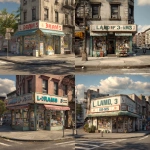Explore the Best AI Image Gallery

Blockchain in Finance: A Creative Revolution
The intersection of finance and creativity has always been a fertile ground for innovation. Now, with the advent of blockchain technology, this landscape is undergoing a radical transformation, offering exciting new possibilities for artists, creators, and businesses alike.
Unveiling the Potential: Blockchains Impact on Creative Industries
Blockchain, renowned for its decentralized and secure nature, presents a unique set of tools that can revolutionize how creative works are produced, distributed, and monetized.
1. Empowering Creators through Digital Ownership
One of the most significant impacts of blockchain is its ability to establish verifiable ownership of digital assets. Artists can now mint their work as non-fungible tokens (NFTs), creating unique digital certificates of authenticity that are recorded on the immutable blockchain ledger. This ensures transparency and provenance, empowering creators to control their creations and benefit directly from their value.
2. Democratizing Access and Funding
Blockchain facilitates direct interactions between creators and their audiences, bypassing traditional gatekeepers and intermediaries. Platforms built on blockchain allow artists to connect with fans worldwide, offering exclusive content, experiences, and rewards. This opens up new avenues for funding creative projects through crowdfunding and tokenized models, empowering independent creators and fostering a more inclusive ecosystem.
3. Transforming Collaboration and Licensing
Blockchain can streamline the complex processes of collaborative creation and licensing agreements. Smart contracts, self-executing agreements encoded on the blockchain, can automate royalty payments, copyright enforcement, and other aspects of intellectual property management. This fosters transparency, trust, and efficiency in collaborative projects.
Ethical Considerations: Navigating the Uncharted Waters
While blockchain holds immense promise for the creative industry, its crucial to address the ethical considerations that arise with this transformative technology:
1. Digital Exclusivity and Accessibility
The emphasis on digital ownership and NFTs raises concerns about accessibility and inclusivity. High transaction fees and technical barriers can create a divide between those who can participate in blockchain-based creative economies and those who cannot. Its essential to ensure that blockchain technology does not exacerbate existing inequalities.
2. Environmental Impact
Some blockchain networks, particularly those using proof-of-work consensus mechanisms, consume significant amounts of energy. This raises concerns about the environmental sustainability of blockchain applications. Exploring more eco-friendly alternatives and promoting responsible practices are crucial for mitigating this impact.
3. Copyright and Intellectual Property
Blockchain technology can simplify copyright management but also presents new challenges. Its important to establish clear legal frameworks and standards for digital ownership, licensing, and attribution in the context of blockchain.
Future Trends: A Glimpse into the Blockchain-Powered Creative Landscape
The evolution of blockchain technology is constantly shaping the future of creative industries:
1. Decentralized Autonomous Organizations (DAOs) for Collective Creativity
DAOs, community-owned and governed entities, are emerging as powerful tools for collaborative creation. Artists can leverage DAOs to pool resources, make decisions collectively, and share ownership and revenue in a transparent manner.
2. Immersive Experiences and the Metaverse
Blockchain is playing a pivotal role in the development of immersive virtual worlds and the metaverse. NFTs can represent unique assets within these virtual environments, creating new opportunities for artists to display their work, engage with audiences, and generate revenue.
3. Integration with Artificial Intelligence (AI)
The convergence of blockchain and AI is unlocking exciting possibilities for creative applications. AI-powered tools can assist artists in generating content, personalizing experiences, and automating tasks, while blockchain ensures transparency and ownership of the resulting creations.
Conclusion: Embracing a New Era of Creativity
Blockchain technology is poised to revolutionize the creative industry, empowering creators, fostering collaboration, and opening up new avenues for artistic expression. By embracing this transformative technology responsibly and addressing ethical considerations, we can unlock its full potential to shape a more inclusive and innovative future for creativity.
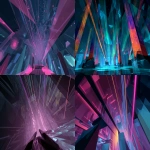

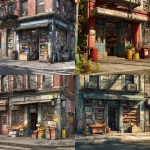
](https://images.ai-img.art/thumbnails/150/48bc6595bd726455bbeb1f2fef65efdd36a6264de2d9e253f6c5f9fd00dbbd21.webp)
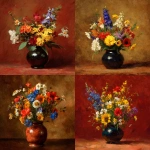

](https://images.ai-img.art/thumbnails/150/f88682ac7749bbd2e80ef281a2f196215a7d5515866a6925e1ee15ccea1b2e8e.webp)

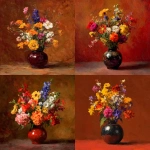
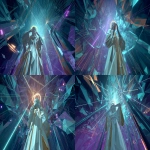

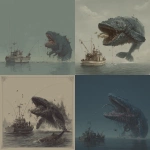


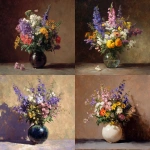

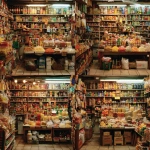
](https://images.ai-img.art/thumbnails/150/d09aea54eca5de3b78e08fd836012ff6a23d17835a2473c901b4859073a93cf2.webp)
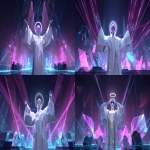
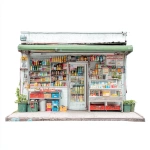
](https://images.ai-img.art/thumbnails/150/b23568689bdc550e1f653d225620666e319e1ef840eb35121c2ff61ea639a6f6.webp)





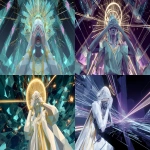
](https://images.ai-img.art/thumbnails/150/05654f70ed91bfff26b57ce7abcba9e59fdcb86339c5db1e44e4cf6451b028b0.webp)



](https://images.ai-img.art/thumbnails/150/db8c0ceb5fc7105e6e975a02df61497f198371c8de6a53c7867f346b1708c13a.webp)
](https://images.ai-img.art/thumbnails/150/02120d31d5771fadbd25ea482d4fea0a00db4203579724231b752a52fe0e7e4c.webp)
](https://images.ai-img.art/thumbnails/150/252bd2057e5882209a393dc6a7b2f5b238c67f12dc0401608867543ab2acf39b.webp)
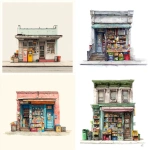
](https://images.ai-img.art/thumbnails/150/5fe4e4a0b755f7ee536875c4418d1307af56f0b399cc9459f01ca7b2307f906c.webp)
](https://images.ai-img.art/thumbnails/150/072fd597f9213821953f6a8e2e7ac3e3569f1c69444b6b2502bf31525fc98576.webp)



](https://images.ai-img.art/thumbnails/150/886c07228472ed209e01fcf32d6d4d1d2d7577280258b4c2a2c7db7ec749b95c.webp)

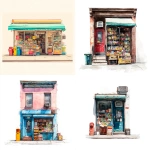
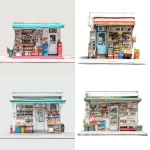
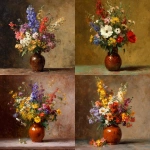
](https://images.ai-img.art/thumbnails/150/058e808da703f55c4c6ff9009cfceb51153628ffc94cb42ddb9627ece60c5b3c.webp)

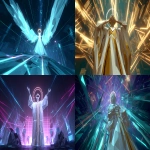
](https://images.ai-img.art/thumbnails/150/0eba954f29355e6fd5353c2b3fcbedd909f8a5e462d0a5982880af5bb19a12ad.webp)
